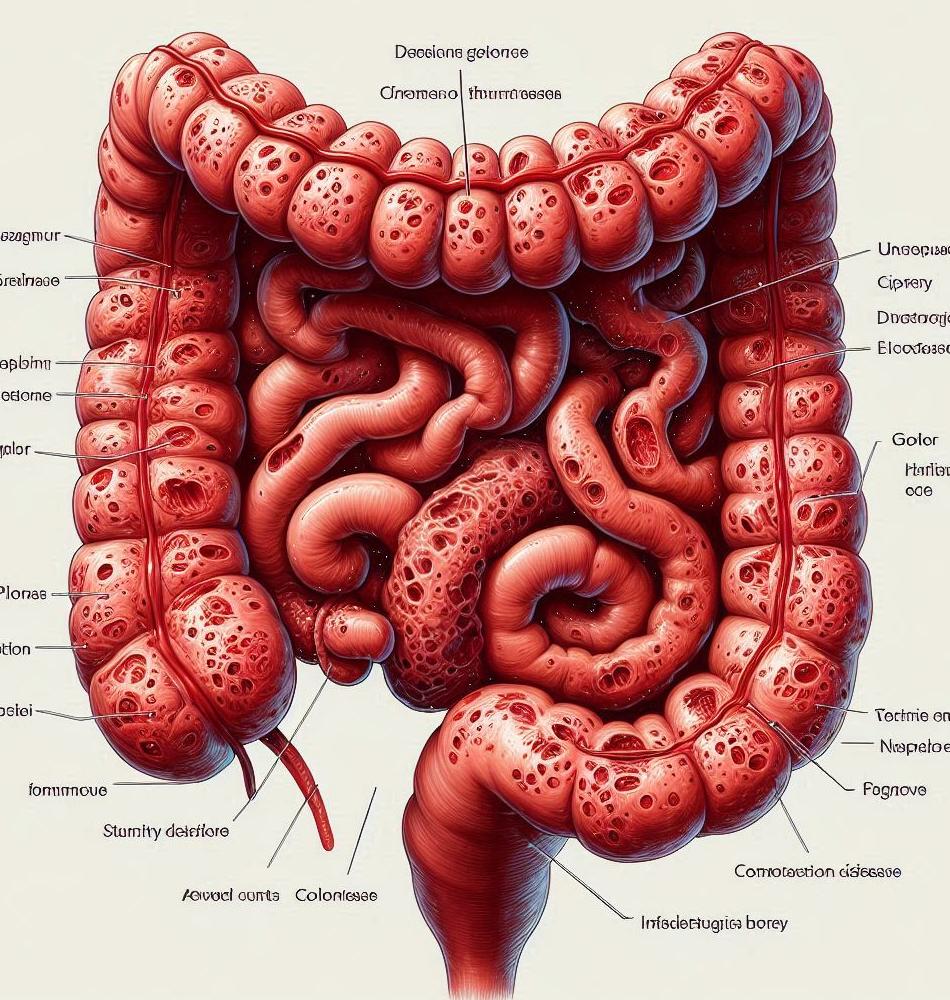Understanding Crohn's Disease: Can It Lead to Fatality? 🩺
Crohn's disease is a chronic inflammatory bowel disease that can have far-reaching implications for those who suffer from it. Is it just a digestive irritation, or does its significance run much deeper? People often wonder about the severity of this illness and whether it can lead to a fatal outcome. This article peeks behind the curtain of Crohn's disease, exploring its potential risks, symptoms, and treatments, while offering insights for anyone affected by or concerned about it.
What is Crohn's Disease? 🚑
Crohn’s disease is part of a group of digestive disorders known as inflammatory bowel diseases (IBD). While the exact cause remains unclear, it is believed to stem from a combination of an inappropriate immune response, genetic predisposition, and environmental factors. Crohn's can affect any part of the gastrointestinal tract, but it most commonly impacts the intestines.
Common Symptoms of Crohn's Disease 🦠
People with Crohn's disease can experience a range of symptoms, which might include:
- Abdominal pain and cramping
- Severe diarrhea
- Fatigue
- Weight loss
- Reduced appetite
- Fever
- Mouth sores
Complications of Crohn's Disease ⚠️
While Crohn's disease itself is rarely fatal, its complications can pose serious health risks. Understanding these complications is crucial for management and prevention. Here are some significant complications associated with the disease:
Intestinal Blockage 🛑
Crohn's disease can lead to the thickening of the intestinal walls, resulting in blockages. This can cause severe discomfort and may require surgical intervention to resolve the obstruction.
Fistulas and Abscesses 📈
Fistulas are abnormal connections that can form between different regions of the intestines or between the intestines and other organs. Abscesses can occur when intestinal walls are damaged and can lead to infection. Both conditions can require surgical treatments and may result in serious complications.
Nutritional Deficiencies 🍽️
The inflammation associated with Crohn's may affect the body’s ability to absorb nutrients properly. This can lead to deficiencies in vitamins and minerals, impacting overall health and potentially resulting in life-threatening issues if not addressed.
Increased Risk of Colon Cancer 🎗️
Long-term inflammation in the intestines can lead to a heightened risk of developing colon cancer. Regular screenings are essential for those diagnosed with Crohn’s disease to catch any early warning signs.
Can Crohn's Disease Result in Death? 🤔
So, can Crohn's disease lead to death? While the disease itself is not usually fatal, the complications that arise from it can lead to severe health issues that may become life-threatening. Therefore, while Crohn's is manageable, the reality is that it can, under certain circumstances, culminate in dire outcomes. Proper management, regular monitoring, and early intervention are critical in mitigating these risks.
What Are the Treatment Options? 🏥
Fortunately, there are several effective treatment strategies for managing Crohn's disease:
- Medications such as anti-inflammatories, immune system suppressants, and antibiotics
- Biologic therapies that target specific areas of the immune system
- Dietary changes to avoid triggering symptoms
- Surgery in cases where complications arise or symptoms become unbearable
Frequently Asked Questions About Crohn's Disease ❓
- Can everyone with Crohn's disease experience life-threatening complications?
- What are the signs that Crohn's disease may be getting worse?
- Is surgery always necessary for people with Crohn's disease?
- How can lifestyle changes impact the course of the disease?
Lifestyle Changes and Management 🌱
Addressing Crohn's disease often includes significant lifestyle changes that can greatly influence its course:
Dietary Considerations 🔍
Individuals with Crohn's disease often benefit from a specialized diet. Here are some dietary tips:
- Avoid processed foods, high-fat foods, and sure to stay hydrated
- Incorporate fiber-rich foods gradually to improve digestion
- Consider working with a nutritionist to create an individualized meal plan
Stress Management 🧘♂️
Stress can exacerbate symptoms of Crohn's disease. Adopting stress-reducing techniques such as mindfulness, yoga, and regular physical activity can help improve quality of life.
The Importance of Support and Community 🤝
Living with Crohn's disease may feel isolating, but support networks can play a pivotal role:
- Look for local or online support groups to share experiences and coping strategies
- Educate family and friends about the condition for better support
- Seek professional help when needed to address mental health concerns
Conclusion ⚡
In summary, Crohn's disease poses significant challenges that can affect daily life, but it does not have to be a death sentence. With active management, a consideration of lifestyle changes, and supportive communities, individuals can lead fulfilling lives. Understanding the potential risks and complications associated with Crohn's will not only bring peace of mind but can also empower patients to take charge of their health.
.png)





